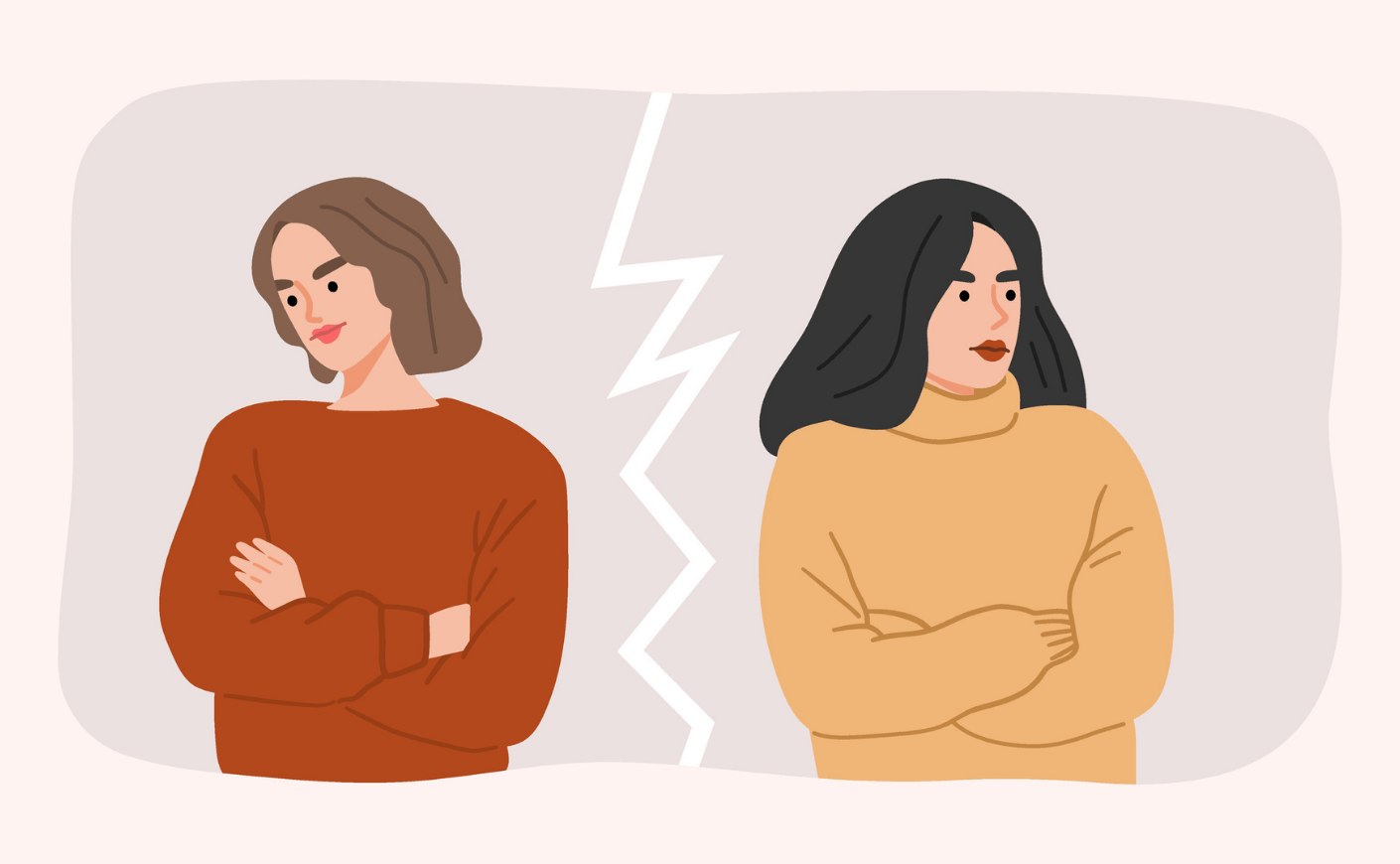Let’s be honest: The end of a friendship can feel as heartbreaking as the end of a romantic relationship, except sometimes it’s even more painful. Losing a friend you’ve shared vacations with, hosted family dinners with, spilled your heart out to, ugly cried with, and raised champagne toasts for can hurt deeply and take time to heal from.
“In my life, friendship breakups took me longer to get over than most romantic breakups,” says Amy Weatherly, who co-wrote a modern guidebook on navigating friendship called I’ll Be There (But I’ll Be Wearing Sweatpants) with her friend Jess Johnston. “With dating, there’s normally a very clear breakup, like, ‘Hey, it’s ending. It’s not you, it’s me.’ With friendships, there’s not always a conversation. We don’t always know why it ends when it does, so we’re kind of left there going, ‘Wait, what? Why?‘”
Sometimes the end of a friendship happens slowly and it comes before you can even recognize it — maybe the friendship was once really rewarding but something’s changed, or perhaps you’ve simply grown apart. Other times there might be an act of betrayal. Or maybe you both mutually agree to split ways. As we get older, oftentimes the end of a friendship could result from reflecting and realizing this person no longer serves you and instead adds an element of toxicity to your life. It’s important to give yourself permission to end relationships that bring negativity, especially if they are creating more bad than good, even if it wasn’t always that way.
Regardless of the reason, breaking up with a friend is never easy. The loss of that safe space and the potential for new memories together can cut deeply.
“We hope our friendships will last a lifetime, but when you recognize some friendships are for seasons, you can allow yourself space to grieve that loss,” says Johnston.
If you’re coping with the end of a soul-sister type of friendship, these two authors share helpful tips that can help you accept the loss, find closure, and even make new friends.
How to end a friendship
Decide whether you need to have a discussion with your friend or walk away
If you’ve got a lot of history, it might make sense to have a conversation about what happened — even if it feels scary. But on the other hand, sometimes a barrier of trust has been broken so badly that a conversation isn’t really warranted. That’s up to you to decide.
“When it’s time to move on, whether you decide to pull back or choose to have an honest conversation and tell your friend how you’re feeling is up to you,” says Weatherly. “I really value honest communication, but some friendships don’t need to have that conversation. There just needs to be a pullback.” In the end, you have to protect yourself and do whatever feels right for you.
Appreciate the memories you made but allow yourself to move on without resentment
In the same way romantic relationships come and go, so can friendships. “It’s important to remember that at one point you loved this person and they meant something to you, but to also set boundaries and say, ‘I forgive you for what you’ve done but this can’t continue and I’m not getting back in it,’” says Weatherly. Being direct with yourself about your decision to move on, while honoring the good times you once had, can help prevent bitterness from sinking in. “It’s really easy to get bitter and really angry toward that person,” says Weatherly. “But that doesn’t serve either of you very well.”
Write a letter to them — even if you never send it
“There’s something healing about pouring your heart out and writing your feelings down,” says Weatherly. Whether or not you decide to share the letter with your ex-friend, or burn it to ashes in the fireplace, is up to you. But simply taking the time to write out how you’re feeling about the way the friendship ended or how they really hurt you can help bring closure to a seemingly ambiguous ending.
Remember that the world is full of new people
“We hear a lot of people say, ‘I’ve been hurt, it’s not worth it, I’m never going to open myself up again or try making new friends,’” says Johnston. “I get it, but connection is worth it and there are so many amazing people to connect with. Every single friendship is going to be a risk. You’re never going to have a guarantee that a person will never hurt you or leave you. But the payoff of connection is worth it.”













